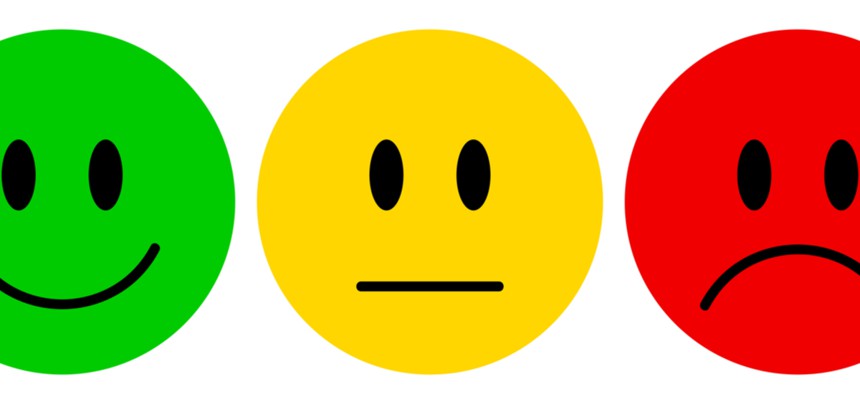Every conversation I have these days with someone who doesn’t live in my home—every FaceTime with a friend or family member, every reporting phone call—kicks off with a brief, awkward, accidental meditation on mortality. “Hi!” I say. “Hi!” the other person says back. “How are you?” I ask next, out of habit. And then we both spend a long moment gazing directly into the abyss.
How are we? People are sick and dying in alarming numbers all around us. Maybe we’re lucky enough not to be sick or dying, but any of us could be soon. Everyone we know is in danger. Our jobs, and really our entire financial futures, are in jeopardy. Are we really going to paper over these grim truths with the usual, compulsorily breezy “I’m good! You?”
The innocuous “How are you?” at the start of a conversation—which is normally understood in American culture to be a polite way of expressing concern for a person’s well-being, and to which the socially agreed-upon response is “I’m good,” “I’m fine,” or “I’m doing well”—hits differently in the COVID-19 era. The coronavirus pandemic and its effects are dramatic and widespread enough that it’s safe to assume everyone’s life has changed for the worse in some way. This moment has laid bare the extent to which “How are you?” is a mere pleasantry and not an honest inquiry in search of an honest answer. To ask “How are you?” is either to make the conversation very gloomy, very fast or to force someone to lie straight to your face and say they’re fine. We need better questions to ask.
The “How are you?” “I’m fine” exchange has typically been a bit of a deceptive one. As Emily Rine Butler, who teaches linguistics at the University of Florida, explained to me in an email, the dialogue is an “adjacency pair,” or a short two-person script that is performed in a particular order. One type of adjacency pair is “question-answer,” and another is “greeting-greeting”—while “How are you?” “I’m fine” may seem like a question and an answer, in practice it functions more like two greetings. “Even though it looks like the person is asking an open-ended question, we treat it as a closed-ended question, in which ‘good’ or ‘fine’ is all that is ... preferred/expected,” Butler wrote. Fulfilling the expectation to say you’re “fine” when your life is even just a little less fine than usual can be hard. Saying “I’m fine” when the honest answer is “I’m sleepless, tense, and full of dread because my whole life is oriented toward trying desperately not to catch a deadly disease” can feel like an outright farce.
Given that the particular stress of the current moment stems from illness, this is also probably the worst possible time to be a society that uses “How are you?” “I’m fine” as the standard two-person greeting. “Health and whether a person is sick or not is monumental right now,” says Deborah Tannen, a linguistics professor at Georgetown University and the author of You’re the Only One I Can Tell: Inside the Language of Women’s Friendships. “It’s hugely important. It’s what’s on everybody’s mind.” Tannen points out that in certain parts of Asia, a common greeting exchange goes something like “Have you eaten yet?” “Yes, I’ve eaten rice.” Asking “How are you?” out of politeness during a pandemic is like asking “Have you eaten yet?” during a famine: Not only does the question draw all involved parties’ attention to the terrible circumstances at hand, but the expectation of a polite response negates the possibility of an actually informative answer.
There is, however, precedent for adjusting what’s customary or polite in extraordinary times. Lizzie Post, a co-president of the Emily Post Institute and the great-great-granddaughter of its namesake manners expert, pointed out to me that a World War II–era edition of Emily Post’s Etiquette included a special wartime supplement, in which Post urged dinner-party hosts to abandon the established custom of serving every guest a hearty portion regardless of the size of their appetite, in order to minimize food waste. She also encouraged young women to disregard her earlier advice not to write “impulsive” letters to their “boy friends,” now that many of those boy friends were fighting in the war. In wartime, the supplement reads, “nothing is more welcome to the normal home-loving man (or girl) than to hear his name called when the mail is handed out.”







